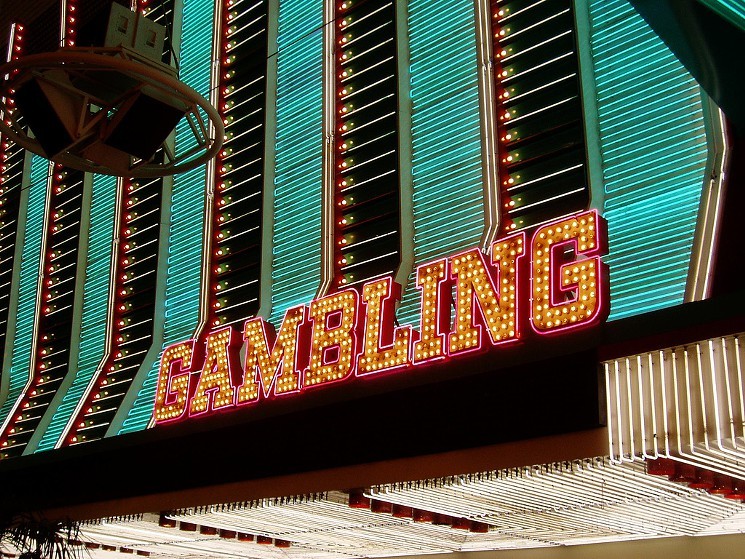It will enjoy a brief and beautiful life, like the first snowflake falling onto the street, before dying of starvation and neglect in the Senate.
Photo by Joel Kramer via Flickr creative commons
In dramatic fashion, the Texas House on Thursday gave final approval to legislation that would let voters decide whether to legalize online sports betting across the state.
The proposal needed 100 votes to pass and got exactly that when the roll was first called. A subsequent verification of the vote, which took several minutes as the clerk ticked through every member, produced 101 votes in favor of House Joint Resolution 102.
It is one of two proposals to expand gambling that have headlined the past two days in the lower chamber. Another, more ambitious piece of legislation, House Joint Resolution 155, would let voters decide whether to legalize casinos in Texas. The final consideration of that proposal was delayed until noon Friday as supporters continued working to find 100 votes.
Regardless, both proposals face long odds in the Senate, where Lt. Gov. Dan Patrick has repeatedly said there is not enough support. And Friday is the deadline for the House to give final passage to its bills, meaning the casino legislation is running into a time crunch.
On Wednesday, the House initially approved both proposals, but neither received the two-thirds majority that proposed amendments to the Texas Constitution need to make it out of the chamber. That left them in an uncertain position heading into Thursday.
The author of the sports-betting legislation, Rep. Jeff Leach, R-Plano, gave an emphatic final speech on the House floor Thursday, reiterating his argument that many Texans are already betting on sports, only illegally.
“Every single one of them are criminals … under Texas law, and I believe that we should pass this bill to let them come out of the shadows and to carefully and safely regulate this,” Leach said.
The sports-betting legislation was able to clear the 100-vote threshold after several members changed their votes Thursday. At least five voted yes on HJR 102 on Thursday after voting no a day earlier.
A day earlier, the House passed the casino proposal by a vote of 92-51 and then the sports-betting proposal by a 97-44 vote. Both resolutions need a two-thirds majority from the House and Senate, followed by voter approval, to amend the state constitution.
See here for some background. I invite you to think of some other activities that are legal in other states and draw many Texans to them to partake in them because doing so would make them criminals here in Texas while I tell you that the casino bill ultimately went down.
The high-profile push to bring casinos to Texas this legislative session ended Friday after supporters acknowledged that they did not have enough votes to advance it out of the state House.
One of the authors of casino legislation, Rep. John Kuempel, R-Seguin, postponed consideration of his bill until Nov. 29, dooming its chances ahead of a midnight deadline to move it out of the lower chamber.
As the stories note, legislation to expand gambling made it farther this year than it ever had before, and that’s not nothing. It still faces the same immovable object in the Senate, and I don’t see anything to suggest that’s going to change. My advice to the casinos would be to work to remove said immovable object electorally, rather than continue to bash their heads and their seemingly limitless wallets against the wall every two years. I don’t see how that would be a worse strategy than what they’ve been doing for however long. The Chron has more.


I wish to mock this argument:
“I invite you to think of some other activities that are legal in other states and draw many Texans to them to partake in them because doing so would make them criminals here in Texas”
Now, suppose we’re in Illinois and discussing a bill that failed to pass the legislature there that would have let people buy assault weapons. Would this be a reasonable argument to make about why we should just let people buy assault weapons in Illinois? I don’t think so. So it’s not reasonable here.
One can take a libertarian position – that we should have casinos like Louisiana, and brothels like Nevada, and child labor like Arkansas – and I can respect that. One can also take the position that casinos and brothels and workhouses for children are exploitative and bad for society. But if you want to single out casinos for approval, you need a better argument.
To riff on Doug? A less capitalist argument.
Related issue? What would the state do with its cut of proceeds? Dump it into the general fund, like the lottery, after promising it would “help schools:?